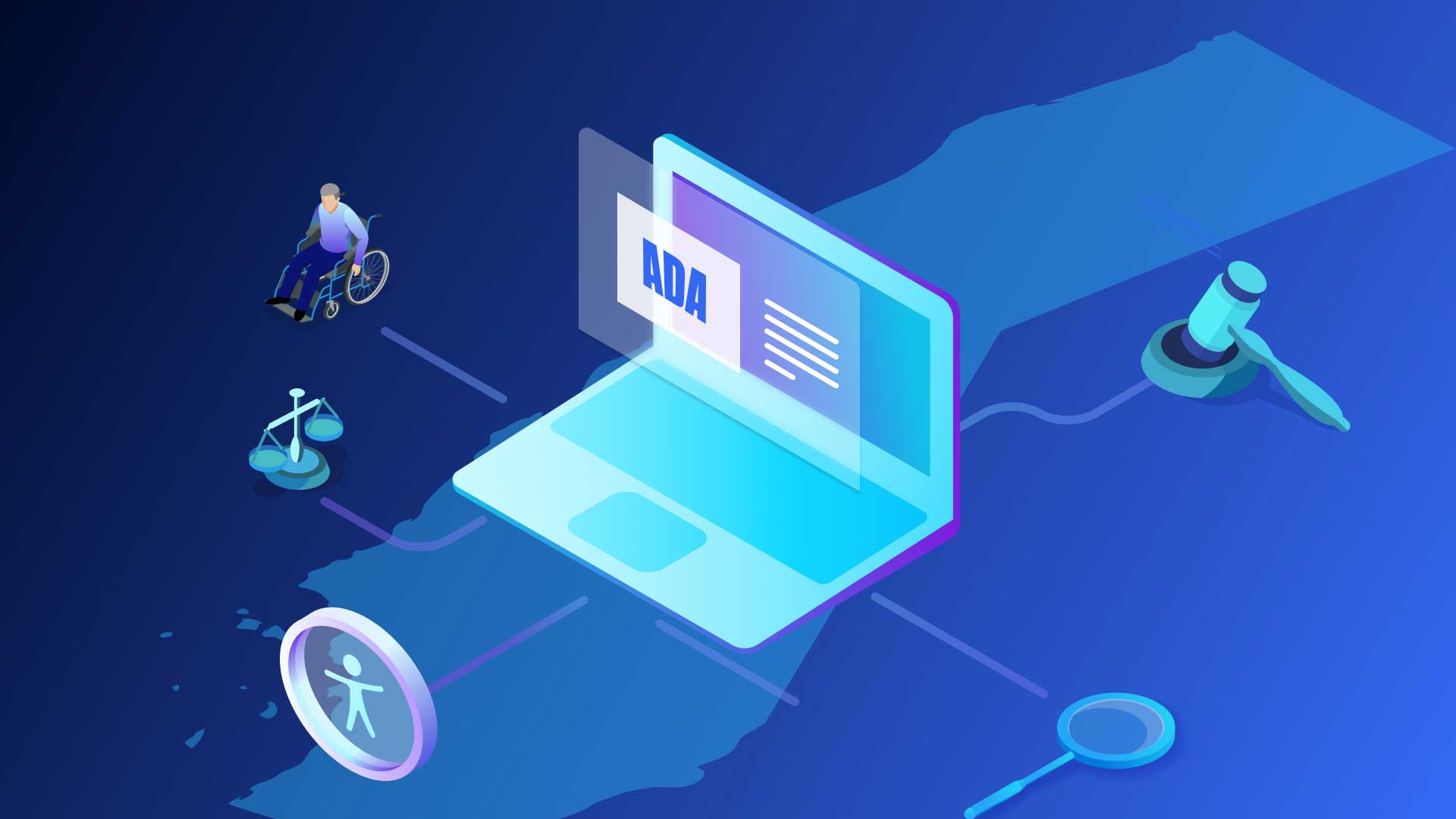Inside California’s UNRUH Civil Rights Act

California’s UNRUH Civil Rights Act. A pioneering legislation built on a bold promise: to protect all Californians from discrimination by all business establishments, irrespective of sex, race, color, religion, ancestry, national origin, disability, medical condition, or other arbitrary distinctions.
In this piece, we’re exploring this robust piece of California state law. We’ll look at the ins and outs of California’s discrimination law, discussing the challenges, the insights and the opportunities around how the UNRUH is safeguarding the rights of California residents in many significant ways.
What is the UNRUH Civil Rights Act?
The Unruh Civil Rights Act, commonly referred to simply as Unruh, is a landmark piece of legislation passed in 1959 in California. Named after Jesse Unruh, its principal author and a prominent California legislator, the Act provides protection from discrimination by all business establishments in California, including housing and public accommodations.
Under the Unruh Civil Rights Act, businesses are prohibited from discriminating on a variety of characteristics. There is wide-ranging protection under this equality law and California’s protected classes include race, religion, ancestry, disability, and several others. The law is broad in scope, applying not just to physical locations but also to online businesses and services, which must ensure accessibility and non-discriminatory practices.
This protection extends to anyone in California, making the Unruh Civil Rights Act one of the most comprehensive civil rights laws in the nation. Its goal is to ensure that all individuals have equal rights and equal access to public spaces and services, for a more inclusive society.
Who needs to adhere to the Unruh Civil Rights Act?
In California, any business that provides services, goods, or accommodations to the public must adhere to the Unruh Civil Rights Act. This includes a wide range of entities such as hotels, restaurants, retail stores, hospitals, dental and medical clinics, theaters, banks, and public agencies. Essentially, any business that is open to the public, regardless of its size or the nature of its business, is required to comply with the provisions of the Unruh Act.
What does UNRUH mean for California’s businesses?
Businesses are in the spotlight of California’s anti-discrimination laws, in particular with regards to employment discrimination in California, guided by some of the most comprehensive civil rights laws in the nation. These laws prohibit discrimination based on the characteristics mentioned above, with specific disability laws regarding employment that set a standard for building workplaces that are inclusive and equitable.
Under California’s Fair Employment and Housing Act (FEHA), businesses are required to provide equal employment opportunities to all job applicants and employees. They must adhere to laws that prohibit gender and racial discrimination in California, so that all individuals are treated fairly in both employment and public accommodations.
California’s commitment to addressing business discrimination doesn’t stop at employment hiring processes. It includes ongoing responsibilities for businesses, such as providing reasonable accommodations for employees with disabilities, protecting employees from harassment in the workplace, and creating employment policies that are free from discriminatory practices.
What is California’s position on anti-discrimination law?
The approach to combating discrimination in California, whether based on gender, race, or disability, is proactive. Let’s look at the state’s position on a few key areas:
Gender discrimination in California
Gender discrimination is addressed in employment and in services such as healthcare and education. There are specific protections against pregnancy discrimination and unequal pay. California law also protects transgender and gender nonconforming employees from discrimination and protects employees who complain about discrimination or harassment in the workplace. Read more information on anti-discrimination law here.
Racial discrimination in California
California has seen its fair share of social unrest over racism and discrimination in recent years, sparked by the murder of George Floyd. Harassment and discrimination against Black workers for example has been a longstanding issue. Now, with Latinos now forming the majority in many low-wage workplaces, incidents of anti-Black racial discrimination are under increased scrutiny. The UNRUH law prohibits any business in California from engaging in unlawful discrimination against all persons, highlighting California’s commitment to equal treatment across all corners of public life.
Disability discrimination in California
California’s disability discrimination laws go beyond the basics of the federal Americans with Disabilities Act (ADA). Businesses and public spaces are required to be physically accessible and they also need to ensure their websites and mobile apps are accessible. This means everyone should have equal access to digital spaces, not just physical ones.
All of these measures demonstrate California’s forward-thinking stance on civil rights established to meet the needs of its diverse population.
What does UNRUH mean for digital accessibility?
California’s Civil Rights Act has significant implications for digital accessibility, particularly as it relates to how businesses in California must accommodate individuals with disabilities on their websites and mobile applications.
While the UCRA itself does not explicitly mention digital accessibility, California courts have interpreted the law to extend protections against discrimination to digital spaces. This interpretation aligns with the understanding that websites and digital platforms function as “places of public accommodation.”
California courts have often referenced and relied upon federal standards under the Americans with Disabilities Act (ADA) to guide web accessibility requirements indirectly through UCRA.
Under the ADA, and by extension often applied through the UCRA, web accessibility generally adheres to the Web Content Accessibility Guidelines (WCAG).
The guidelines set by the World Wide Web Consortium (W3C), known as the Web Content Accessibility Guidelines (WCAG), are globally recognized as the benchmark for web accessibility. These guidelines are designed to make web content more accessible to people with various disabilities, including those that affect vision, hearing, physical mobility, speech, cognition, language, learning, and neurological functions.
WCAG guidelines are structured across three levels of conformance: A (lowest), AA, and AAA (highest). Most legal standards and best practice recommendations for web accessibility aim for Level AA conformance.
By aligning web accessibility with these standards, businesses can avoid potential discrimination claims under the UCRA, creating more inclusive, equitable and accessible online spaces for all users.
Why is it important for a business to comply with the UCRA?
It is essential for businesses operating a website in California to comply with the Unruh Civil Rights Act for the following reasons:
1. Alignment with federal standards: Complying with the UCRA also ensures compliance with the Americans with Disabilities Act (ADA). This dual compliance helps businesses meet both state and federal requirements efficiently.
2. Legal precedents: Both federal and state courts in California have ruled that if a business operates a physical location and a website, the website must also be accessible. This sets a clear legal expectation for accessibility.
3. Interstate commerce considerations: Although it might seem that e-commerce sites are exempt from accessibility requirements in California, businesses must consider interstate commerce implications. Customers with disabilities from other states could potentially initiate a website accessibility lawsuit if they encounter accessibility barriers, exposing the business to legal action across state lines.
Understanding these points illustrates the importance of adhering to UCRA guidelines to avoid legal consequences and to ensure accessibility for all users.
What are some remedies for discrimination in California?
Individuals who have experienced discrimination have several remedies available to them. Here’s a list of potential legal and compensatory measures:
1. Compensatory damages: Victims can receive compensation for lost wages, benefits, and other expenses directly related to the discrimination.
2. Punitive damages: In cases of especially harmful or malicious discrimination, courts may award punitive damages to deter future misconduct.
3. Injunctive relief: Courts may order the offending party to take specific actions to correct their discriminatory practices, such as altering policies or providing training to employees.
4. Reinstatement: If the discrimination led to wrongful termination or demotion, the victim might be reinstated to their former position or a comparable one.
5. Reasonable accommodations: For disability discrimination, the remedy might include making necessary modifications to ensure accessibility and equal opportunity in the workplace or public accommodations.
6. Attorney’s fees and costs: The court may require the discriminator to pay the legal fees and other costs incurred by the victim in pursuing the case.
7. Back pay and front pay: Victims can recover wages they would have earned had the discrimination not occurred (back pay), and sometimes compensation for future lost earnings (front pay).
These remedies aim to restore victims of discrimination to the position they would have been in if the discrimination had never occurred, and to ensure that discriminatory practices are corrected.
What are the benefits of compliance with the UCRA?
Being compliant with the UCRA can help you avoid fines and other discrimination penalties in California imposed by regulatory bodies such as the U.S. Department of Justice.
Compliance with UCRA offers compelling benefits for businesses:
1. Legal safety: Steering clear of costly discrimination lawsuits and penalties ensures financial and operational stability.
2. Reputation boost: Demonstrating commitment to equality enhances a company’s image, attracting consumers who value ethical practices.
3. Broader market reach: Ensuring accessibility for all, including those with disabilities, expands the customer base and opens new market opportunities.
4. Workplace harmony: A fair and inclusive work environment increases employee satisfaction and retention, boosting overall productivity.
5. Better UX: Compliance with the UCRA ensures better user experience for all visitors to your website. People with disabilities will be able to use your website without any impediments while other visitors will appreciate a clean and organized layout that is easy to navigate.
UserWay: your partners in web accessibility and compliance
If you have any questions about how to align with the Unruh Civil Rights Act or need assistance with making your website compliant, don’t hesitate to reach out. We’re here to help you navigate these regulations to ensure your site is accessible to everyone. Book a demo of our popular Accessibility Widget and start your accessibility journey under UNRUH today.
Common FAQS
Why is UNRUH important for improving the user experience?
Adhering to the UCRA guarantees an enhanced user experience for every individual accessing your website. By complying with these regulations, individuals with disabilities can seamlessly navigate your website, free from any obstacles. Additionally, other visitors will value the user-friendly design, featuring a well-structured and intuitive layout, promoting effortless navigation.
How can I mitigate legal risk?
To avoid legal penalties, the best initial step is to conduct an accessibility audit, ensuring that your website and associated elements are free of barriers for individuals with disabilities. This audit will establish the groundwork for achieving compliance and protecting your company against expensive discrimination lawsuits in California.
I need help with a legal claim – what do I do?
Web accessibility legal matters can significantly impact your business. UserWay’s Legal Support Program is here to help you navigate what can be a stressful and complex experience. Contact us to find out how we can assist you with your legal claim.




Share